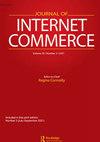测试对话人声的各种准则:在线投诉管理中形式性和个性化对客户结果的影响
IF 4.1
Q2 BUSINESS
引用次数: 11
摘要
摘要在这项研究中,我们检验了个性化和正式程度对客户在社交媒体上回复投诉的态度和行为意图的影响。这项研究与之前的研究不同,它考察了对个性化和形式的不那么极端的操作,以及以对多个帖子的常规化和个性化回答的形式操作个性化。在两项实验研究中,我们测试了个性化和正式性对客户满意度的影响,包括投诉的处理方式、他们对客服代理人的看法(感知到的互动公正)以及代理人在多大程度上努力与他们进行有吸引力的对话(感知到对话人声),以及四种语义差异(专业不专业、假真诚、友好不友好和尊重不尊重)。结果显示,个性化和非正式性的增加是一个积极的主要影响,并清楚地预示了个性化反应的重要性,即更强的影响。研究结果还支持了说服知识模型,该模型显示了在常规化的回应中,非正式可能会适得其反,这表明非正式但常规化的语言使用会引发客户对公司试图说服和操纵他们的怀疑。本文章由计算机程序翻译,如有差异,请以英文原文为准。
Testing the Various Guises of Conversational Human Voice: The Impact of Formality and Personalization on Customer Outcomes in Online Complaint Management
Abstract In this study, we examine the effects of degree of personalization and formality on customers’ attitudes and behavioral intentions in complaint replies on social media. This study differs from previous research in examining less extreme manipulations of personalization and formality, and in operationalizing personalization in the shape of routinized and individualized answers to multiple posts. In two experimental studies, we test the impact of personalization and formality on customers’ satisfaction with how the complaint is handled, their perception of the customer service agent in terms of how well the agent treated them (perceived interactional justice) and to what extent the agent made efforts to have an engaging conversation with them (perceived conversational human voice), and on four semantic differentials (professional-unprofessional, fake-genuine, friendly-unfriendly and respectful-disrespectful). The results show a positive main effect of increased personalization and informality and clearly foreground the importance of individualized responses as the stronger effect. The results also support the Persuasion Knowledge Model in showing how informality may backfire in routinized responses, suggesting that informal but routinized language use triggers suspicion with customers that the company is trying to persuade and manipulate them.
求助全文
通过发布文献求助,成功后即可免费获取论文全文。
去求助
来源期刊

Journal of Internet Commerce
BUSINESS-
CiteScore
10.50
自引率
7.00%
发文量
18
期刊介绍:
The business world has undergone many changes because of information technology, and the impact of the Internet may cause one of the biggest yet. While many people use the Internet for educational and entertainment purposes, organizations and companies are looking for ways to tie their internal networks to this global network to conduct electronic commerce. While companies have been conducting business electronically with suppliers and customers for many years, conducting online commerce via the Internet offers even greater opportunities for multinational, national, and even small businesses to cut costs, improve efficiency, and reach a global market.
 求助内容:
求助内容: 应助结果提醒方式:
应助结果提醒方式:


